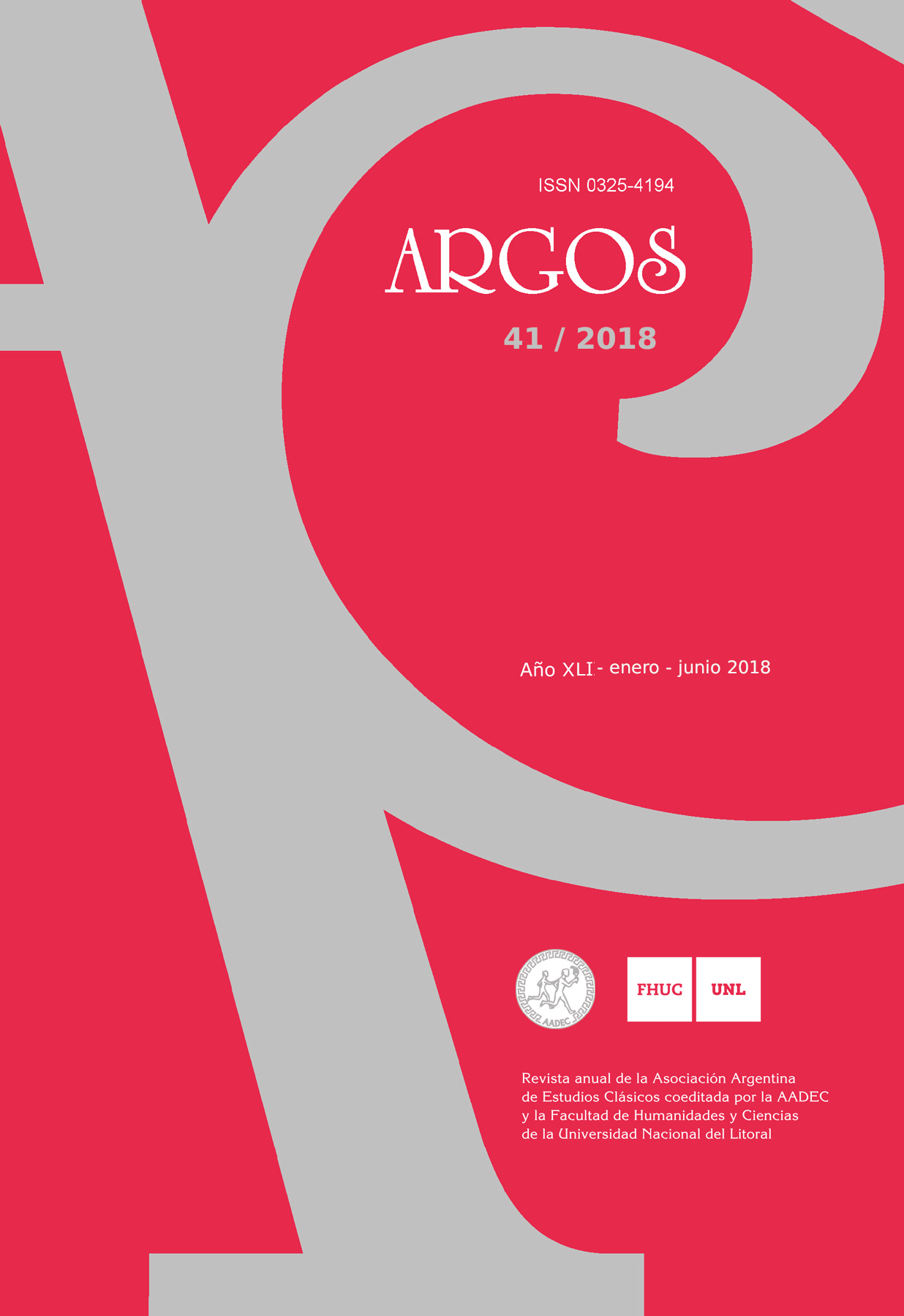LANGUAGE AND PERSUASION IN ATTIC ORATORY: IMPERATIVES AND QUESTIONS
DOI:
https://doi.org/10.14409/argos.2018.41.e0002Keywords:
persuasion, volitional-directive force, imperatives, questions, audienceAbstract
This paper explores the persuasive potential of imperatives and questions in speeches of Aeschines and Demosthenes. Imperatives have a volitional-directive force in that they invite the audience to take action, either by blocking the speaker’s adversary from making a statement, or by voting against him (D. 19.75, 18.324; Aeschin. 3.156). The use of a high concentration of rhetorical questions at specific moments in speeches (Aeschin. 3.130-2; D. 19.250) becomes a powerful tool: both by articulating a relentless attack on the opponent, and by giving the audience no respite in which to consider flaws in the speaker’s position.
Downloads
Published
2018-06-26
How to Cite
Serafim, A. (2018). LANGUAGE AND PERSUASION IN ATTIC ORATORY: IMPERATIVES AND QUESTIONS. Argos, (41), e0002. https://doi.org/10.14409/argos.2018.41.e0002
Issue
Section
Artículos



